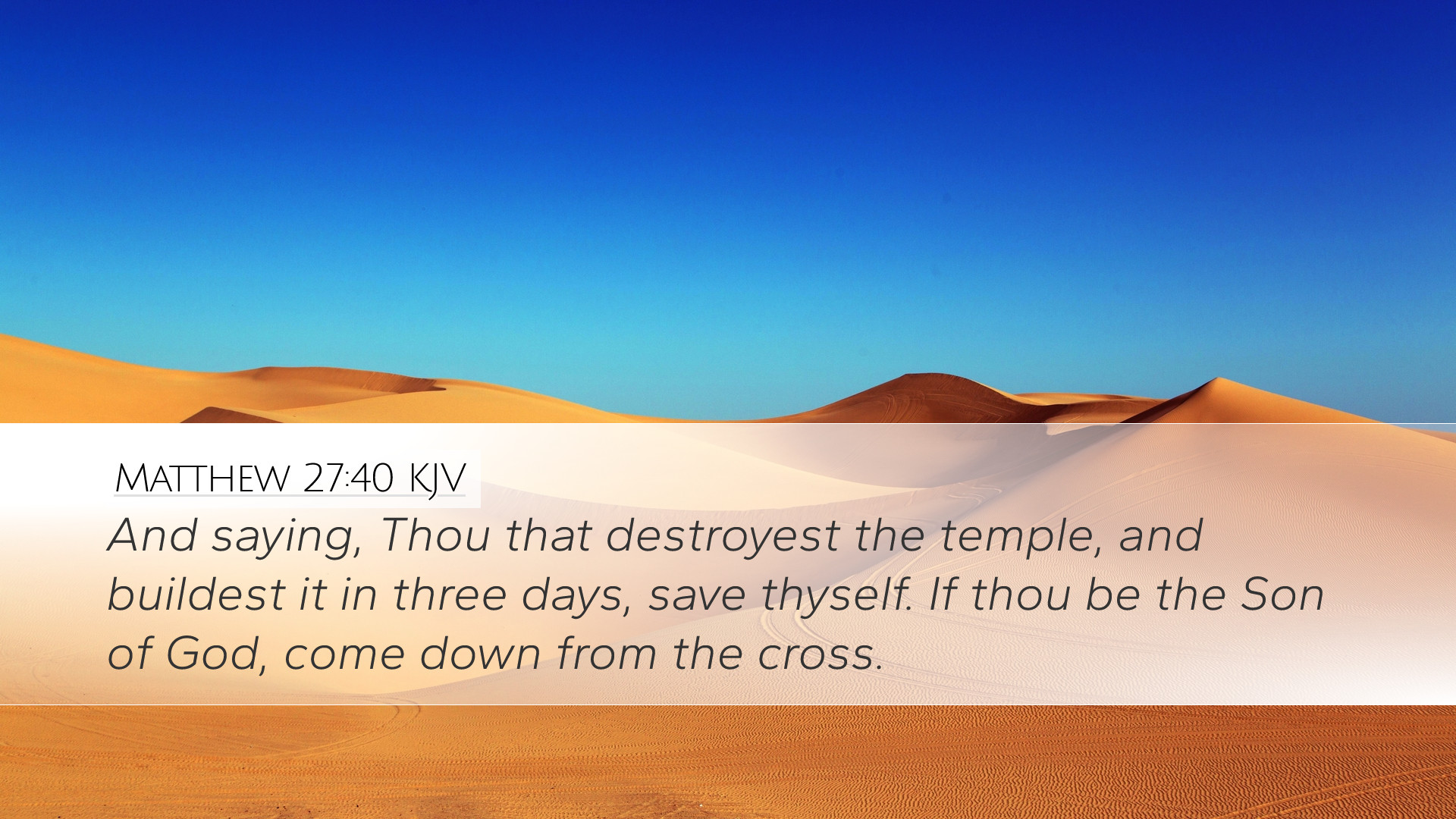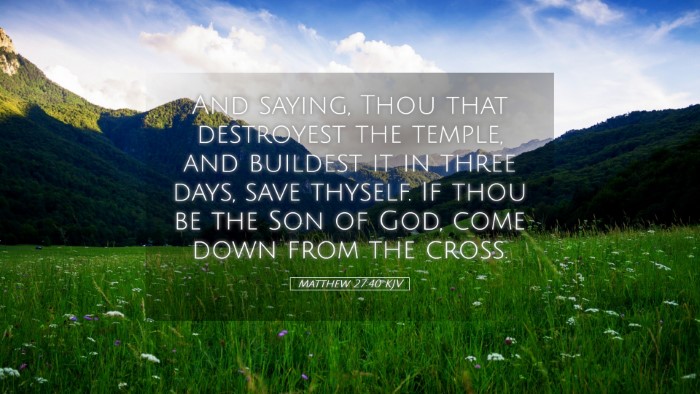Commentary on Matthew 27:40
Verse Text: “And saying, Thou that destroyest the temple, and buildest it in three days, save thyself. If thou be the Son of God, come down from the cross.”
Introduction
Matthew 27:40 is a profound verse that encapsulates the mocking nature of the crowd towards Jesus during His crucifixion. This commentary will explore the various theological and historical implications of this passage, drawing insights from esteemed public domain commentaries, including those by Matthew Henry, Albert Barnes, and Adam Clarke.
Contextual Background
The crucifixion of Jesus Christ is the culmination of His earthly ministry, marked by rejection, suffering, and humiliation. As Jesus hangs on the cross, the surrounding crowd, which includes both passersby and religious leaders, hurls insults and challenges at Him, questioning His identity as the Son of God. This context is critical for understanding the spiritual depth of the mocking tone in Matthew 27:40.
The Mockery of the Audience
The verse specifically references the taunt, “save thyself,” which reflects the disbelief and scorn of the people witnessing the crucifixion. According to Matthew Henry, this mocking challenge is not merely a rejection of Jesus’ claims but an expression of the unrepentant heart that resists divine truth. Henry elucidates how the crowd's demand echoes the spiritual blindness prevalent among those who cannot perceive the redemptive work unfolding before them.
Albert Barnes elaborates further, suggesting that the jeers from the crowd illustrate a misunderstanding of the nature of Christ's mission. He notes that Jesus’ true purpose was not to save Himself but to fulfill the divine plan of salvation through His sacrificial death. Barnes emphasizes that the call to “come down from the cross” represents a temptation to abandon His divine mission for the approval of men.
Significance of the Temple Reference
Jesus' statement about destroying the temple and rebuilding it in three days alludes to His own body as the temple (John 2:19-21). Adam Clarke interprets this as a prophetic reference to His resurrection and points out that the accusers are unwittingly affirming the truth of the very claims they seek to undermine. Clarke highlights the irony of their mockery—while they taunt Him for His perceived impotence, they simultaneously validate His prophetic identity as the Messiah.
Theological Implications
This verse raises essential theological themes concerning the identity and authority of Jesus Christ. Through the mockery, we see a failure to recognize who Jesus truly is. The crowd's skepticism serves as a mirror for contemporary disbelief, prompting reflections on how society continues to encounter Christ today.
Lessons for Believers
From Matthew 27:40, several lessons arise for pastors, students, and theologians:
- Understanding Suffering: Just as Jesus endured ridicule for the sake of salvation, believers are called to understand that suffering can be a part of divine purpose.
- Identity in Christ: The challenge of Jesus’ identity is one that modern believers still face. The passage encourages a reaffirmation of faith amidst skepticism.
- Responding to Mockery: How should Christians respond when faced with mockery? This text provides insight into maintaining integrity and faithfulness even when under pressure.
Conclusion
Matthew 27:40 serves as a significant reminder of the challenges faced by Jesus and, by extension, His followers. The mocking crowd’s taunts, as interpreted by Henry, Barnes, and Clarke, help illustrate the depth of human sinfulness but also highlight the grace and redemptive purpose of Christ’s mission. In contemplating this verse, one is encouraged not only to understand the historical context but to apply its profound truths to contemporary faith living.


